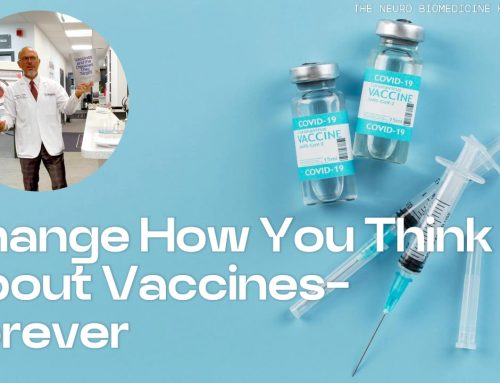Hi this is Dr. Farley. In this blog video I want to go over with you some information that just came out in the Clinical Autonomic Research Journal, December 2021, Volume 31, #6. The name of the article is “Autonomic Modulation” mainly of the heart which gets involved with arrhythmias, heart attack and heart disease which I believe is the leading cause of death in the US, almost identical with cancer, where 650,000 people a year drop dead of heart attacks. We’ve had this issue for decades. We’ve been trying to change these numbers and we never seem to do it. So, I also want to look into what are the causes of most heart attacks? There are basically 9 things listed from WebMD. Researchers say they may know what causes 90% of heart attacks. In Germany they found that smoking, abnormal cholesterol, diabetes, high blood pressure, stress, abdominal obesity, sedentary lifestyle, eating too few fruits and vegetables, and abstaining from alcohol are all causes of most heart attacks. What do I see with my patients? I see over and over again the cholesterol and the blood pressure. Normal cholesterol levels used to be 280, then they were lowered to 240 and then about 10 years ago they were lowered to 200 which now means that everyone has a cholesterol issue. The research also on cholesterol is that total cholesterol levels, the people that drop dead of heart attacks, have the lowest total cholesterol levels meaning that higher cholesterol levels has been shown to be an indicator of less risk of heart disease. The other thing that you want to know is that the research on cholesterol and blood pressure shows there are cardiovascular calculators that you can plug your numbers in. I use the one from the Mayo Clinic. There are two different things you need to understand about whether you’re going to decide to do a treatment or not. There’s statistical effectiveness and clinical effectiveness. For instance, on some of the cholesterol research when statin drugs got approved, they put 1,000 people in a controlled group and 1,000 people in a placebo group. So basically what they did was they gave 1,000 people a statin drug and 1,000 people got nothing. Of the people who got nothing, how many people died over a 10 year period? Approximately 10 people if I remember correctly. Ten people died out of 1,000 which is way less than 1%. It means that your risk of dying of a heart attack, even with a higher cholesterol number, is clinically less than 1%. In the other group of 1,000 people in this study, 5 people died. So if I take 5 and divide it by 1,000 people that took the statin drug, it’s way less than 1%. And if I take 10 and divide it by 1,000 it’s still way less than 1%. I always tell people that I’m personally not doing anything for less than 1% and I’m certainly not concerned with something that’s less than 1%. Why would anyone ever take the statin drugs? The answer is because they tell you the statistical effectiveness not the clinical effectiveness. There were 1,000 people in one group of which 10 people died that did not use the statin drug. Then there’s 1,000 people in the other group in which 5 people died that used the statin drug so clinically there’s no difference. It’s less than 1%. So, statistically they take the 5 people who have died and the 10 and they say…you have a 50% reduction in heart attack risk if you take the statin drug. That sounds pretty good except what they didn’t tell you is that it was a statistical reduction not a clinical reduction. When you plug your numbers into the cardiovascular calculators, there’s also a button for your cardiovascular risk assessment so it asks you about your cholesterol, your HDL and your high blood pressure. I’ve taken cholesterol numbers and changed them just to see what the risk difference is from 200 to 350. There’s been minimal change in clinical risk reduction. I’ve also done the same thing with blood pressure and there’s been minimal change. I’m telling you this because we need to start viewing heart disease from a different point of view than clogged arteries and blood pressure issues. If those two factors worked, shouldn’t we see an outcome difference in less people dropping dead of heart attacks? Shouldn’t we see the numbers come down? Yeah, we should. If we’re correcting the cause, doesn’t it make sense that we should see a decrease in this? What I see is only going after those two factors, cholesterol and blood pressure, has been a total failure. I have not seen the numbers come down. It’s still the #1 cause of death in the US across the board…650,000 people a year die. I believe it’s one person every few seconds dropping dead of a heart attack and yet we all just keep walking around beating the drum of cholesterol and high blood pressure. This is Part 1. Next, I want to talk to you about the autonomic modulation of the heart which gets involved in understanding the autonomic nervous system, your HPA stress axis and this concept of stress and the ability to adapt properly, or not, and how that is impacting your risk for heart attack. That is likely the main missing link for why we’re not seeing a decrease in these heart disease patients and heart attacks because all we’re addressing is the concept of cholesterol and blood pressure which has not been shown to be doing a good job in lowering the number of people who die each year. Thanks. There will be a Part 2 continuation of this information.
God bless you, God bless your family and God Bless America. Thanks.




